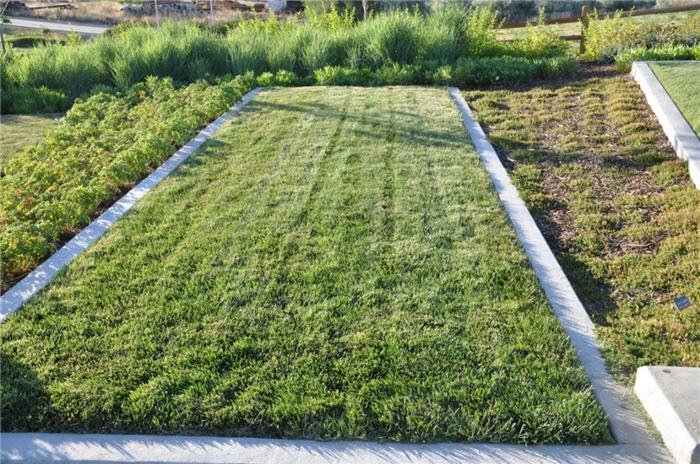| Botanical Name: Festuca arundinacea | |
| Common Name: Tall Fescue |

-
Anatomy
-
Culture
-
Design
Plant Type
Ground cover, Grass
Height Range
Under 1'
Flower Color
n/a
Flower Season
n/a
Leaf Color
Gold
Bark Color
n/a
Fruit Color
n/a
Fruit Season
n/a
Sun
Full, Half
Water
Medium, Extra in Summer
Growth Rate
Fast
Soil Type
Sandy, Clay, Loam
Soil Condition
Average, Rich, Poor, Well-drained
Soil pH
Neutral, Basic
Adverse Factors
n/a
Design Styles
Formal, Japanese, Meadow, Mediterranean, Ranch, Spanish, Woodland
Accenting Features
n/a
Seasonal Interest
Spring, Summer, Fall
Location Uses
Lawn
Special Uses
Erosion Control, Mass Planting
Attracts Wildlife
n/a
Information by: Stephanie Duer
Photographer:
Photographer:
-
Description
-
Notes
Tall fescue is a dense, clumping grass that grows well in sunny to shady areas and is often mixed with other grasses for just this quality. Tall Fescue grass was brought to the US in the early 1800’s for pasturage purposes and now grows in about 4/5 of our country, with turf type varieties used in lawns, on athletic fields, in parks and other areas where a cool season turf grass is desired. Mix with newer bluegrass varieties for a healthy, easy-maintenance, moderate water lawn.
Grows in sun to part shade. Needs well drained soils. See Guides for information on planting and maintenance. Available as seed or sod. Mow to a height of 3 to 4 inches. There are some exciting field trials taking place with both fescue and bluegrass up at USU; we'll keep you posted on their findings.